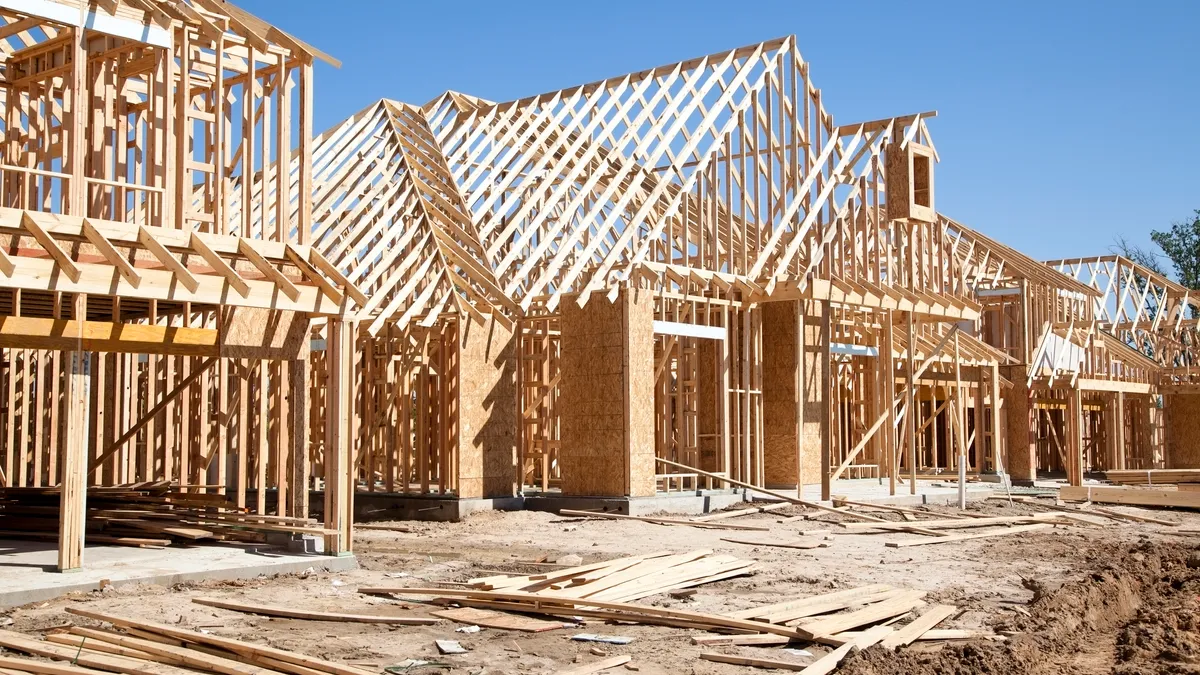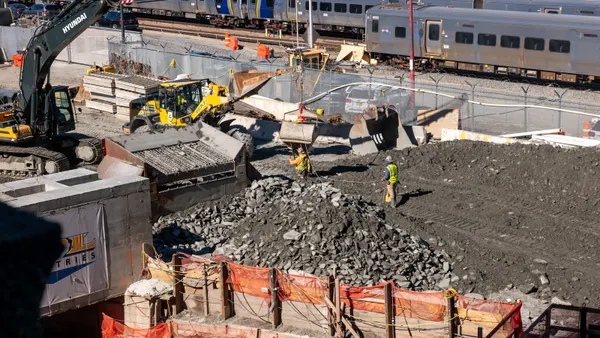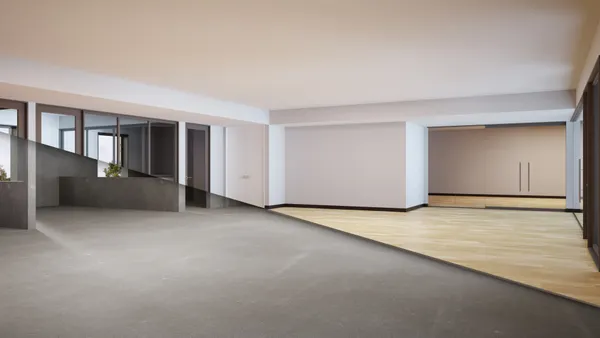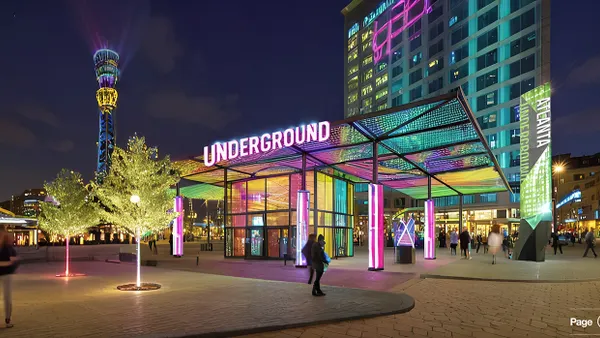Dive Brief:
- The Biden administration released a new plan today to alleviate the rising cost of housing in the U.S. and to address the housing supply shortfall within five years through executive and legislative actions.
- The plan would give cities and towns with reformed zoning and land-use policies higher scores for certain federal grants. It would also expand federal financing options for constructing and preserving factory-built homes, accessory dwelling units and small-scale developments. Existing federal financing options for affordable multifamily housing development and preservation would expand and improve as well.
- The plan re-emphasizes the Biden administration's call on Congress to pass tax credits for building and rehabilitating affordable homes; to expand low-income housing tax credits; and to create a new, $1.75 billion competitive grant program "to help states and localities eliminate needless barriers to affordable housing production," the White House stated. "This is the most comprehensive all of government effort to close the housing supply shortfall in history."
Dive Insight:
The Biden administration's new plan attempts to address a lack of housing supply that has contributed to surging housing costs in many urban regions in recent years, which has put buying a home out of reach for many and has led to renters falling behind on payments or getting evicted. The White House also connected the need to address the housing crisis to President Biden's pledge last week to make addressing inflation his top economic priority.
The plan, which includes both immediate executive actions and proposed legislation that needs approval from a politically divided Congress, received praise from affordable housing advocacy groups.
"In February, I asked if housing was still a priority for the Biden Administration. Today the answer is clearly, yes," said David Dworkin, president and CEO of the National Housing Conference, in a statement.
Diane Yentel, president and CEO of the National Low Income Housing Coalition, stated on Twitter that Congress needs to pass legislation the administration re-emphasized in its latest plan. Those initiatives were introduced in the Build Back Better reconciliation bill that stalled in the U.S. Senate last fall.
Build Back Better allocated more than $170 billion toward affordable housing, including billions for expanded rental assistance; the preservation of public housing; and the construction, preservation and operation of affordable housing units.
"As rents rise, homelessness increases, and public housing deteriorates, robust federal investments & actions are badly needed and long overdue. I commend @POTUS for taking significant action - but the administration cannot solve the crisis on its own," said Yentel on Twitter Monday morning.
In the plan, the Biden administration will leverage transportation funding from the bipartisan infrastructure act and other discretionary grant programs to encourage locally-driven land-use reform, density, rural main street revitalization and transit-oriented development.
Former Housing Secretary Ben Carson, who served under the Trump administration, also called for similar measures, tying U.S. Housing and Urban Development grants to communities that have less restrictive zoning. Carson, in his proposal, wanted to replace an Obama-era rule called Affirmatively Furthering Fair Housing, which intended to combat housing discrimination by requiring cities and towns seeking federal funds to complete a comprehensive assessment explaining how housing segregation exists in their communities and how they plan to address it.
The Biden administration restored the AFFH rule last year after it was effectively scrapped by the Trump administration. Former President Donald Trump equated measures the Biden campaign said it would take to bar discrimination in housing as an attempt to "abolish the suburbs."
Biden's plan also expands and improves federal financing for affordable multifamily development and preservation projects. It will work with Fannie Mae to make Construction to Permanent loans more widely available; promote the use of state, local and tribal government COVID-19 pandemic relief funds to expand their affordable housing supply; and make reforms to low-income housing tax credits for private developers building affordable rental units.
It also deploys new financing mechanisms to build and preserve more housing where financing gaps exist, including for manufactured housing, accessory dwelling units, properties that include between two and four units and smaller multifamily buildings.
The plan includes measures to ensure more government-owned foreclosed homes go to owners who intend to live in them or nonprofits that will rehab them instead of to large institutional investors. And the administration pledges to work with the private sector to address supply-chain issues that are affecting the construction of new homes and to improve construction techniques.













